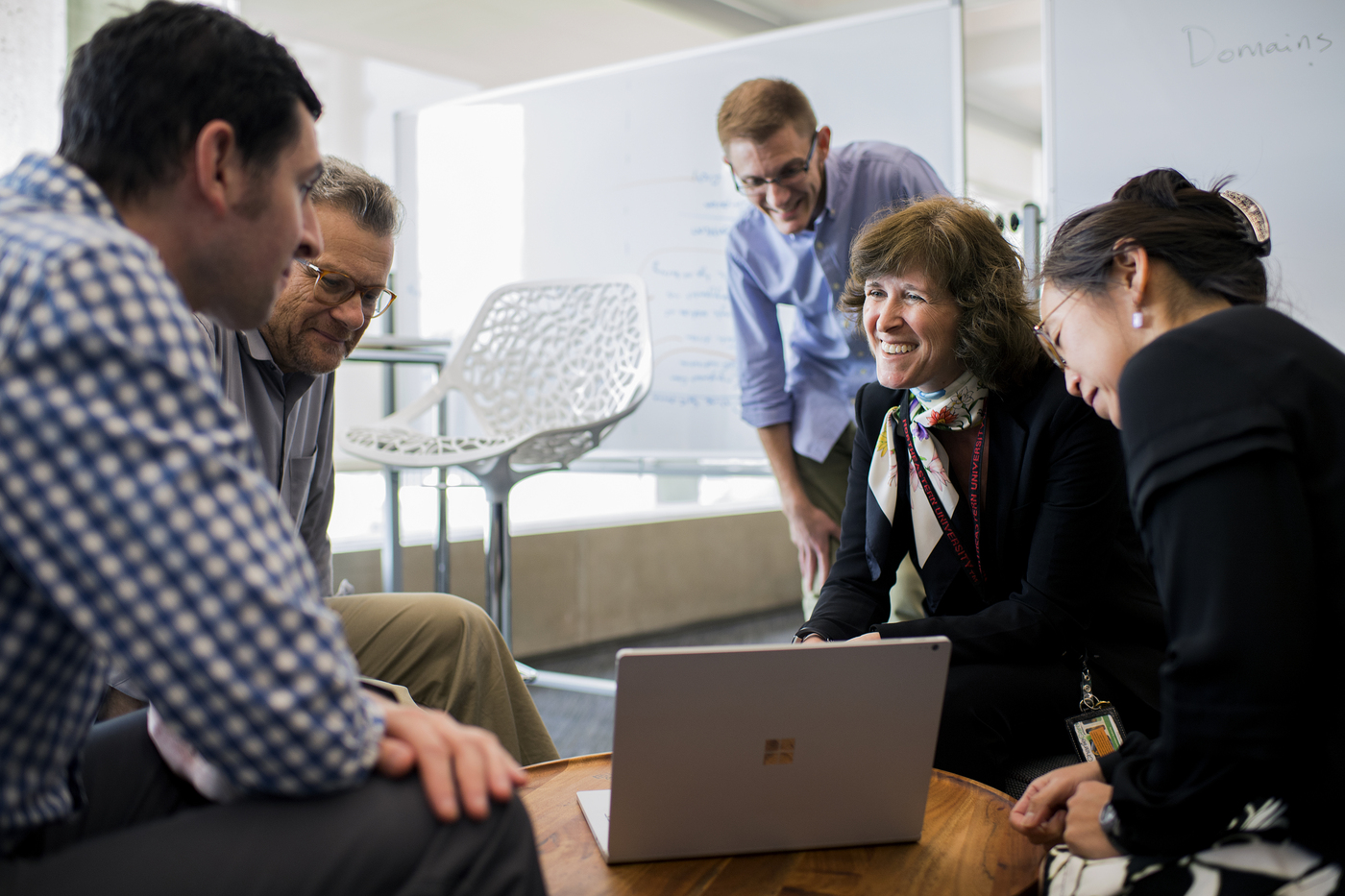Data-minded

Rana Glasgal constantly thinks about data—and for good reason. As associate vice provost for institutional research and decision support at Northeastern, she leads a team that plays a pivotal role in informing decision-making and planning across the university.
“We’re all data people here,” Glasgal says of University Decision Support, the office she oversees. “We love looking at data and working with data. The bigger role we can play in data-informed decision-making, the better.”
She adds, with a laugh: “We technical folks, we get misty-eyed when we look at a spreadsheet and want to dive right into it.”
Glasgal joined Northeastern in May 2016 after nearly two decades at Stanford University. As the head of Northeastern’s institutional research and data administration operations, Glasgal sees an important distinction between being “data-driven” and “data-informed,” the latter of which she views as her office’s charge.
“Data-driven decision-making is like yield management in the airline industry, where a computer program spits out fares,” she says. “When you log onto Expedia or Kayak, the fare you pay is driven by a program that does revenue management.

The UDS team tackled about 450 data projects in the 2016-17 academic year—not including more minor inquiries like data requests for information UDS can quickly provide via email. Photo by Matthew Modoono/Northeastern University
“We think the work we’re doing is data-informed. We’ll do, say, an analysis for someone about a program or give them greater context, and they can use that information to help them better understand the program or the community they’re working in and put all the pieces together.”
University Decision Support’s many roles
UDS—formerly the Office of Institutional Research and Data Administration—serves key data gathering and reporting functions both internally and externally, Glasgal says. The office features a talented staff of data analysts, researchers, and administrators across its institutional research and data administration teams.
We love looking at data and working with data. The bigger role we can play in data-informed decision-making, the better.
Rana Glasgal
Associate vice provost for institutional research and decision support
Internally, the office provides integrated analysis and research to university decision-makers, and it produces and disseminates reports that offer insight into progress and performance at the university level or within a particular college or program. UDS also serves as the university’s survey research arm and works to ensure data quality and secure access to data. Staff also work closely with faculty members when they request university data needed for submitting grant proposals or administrative projects.
Externally, UDS reports data for various purposes, such as college guidebooks, compliance with government programs, and the university’s 10-year accreditation process.
All told, UDS tackled about 450 data projects in the 2016-17 academic year—not including more minor inquiries like data requests for information UDS can quickly provide via email.
New initiatives on the horizon
Glasgal is particularly keen on a few exciting initiatives currently underway. She is chairing a committee tasked with launching a new analytics center at Northeastern. The goal is to create “citizen data scientists”—staff members within various departments or colleges—who are trained to access, work with, and analyze the same types of data with which UDS regularly works.
UDS also launched a more user-friendly website in March and is working on turning the Fact Book—a robust data source of university information, currently in PDF form—into a much more interactive, visually-appealing resource. Faculty, she says, might find the Fact Book and the university’s public Common Data Set particularly useful for data they need for grant proposals.
The joy of problem solving
Glasgal holds a Bachelor of Science in Operations Research and a Master of Engineering from Cornell University, and served as a management science consultant for five years before joining Stanford in 1997. She says the problem-solving nature of UDS’ work is energizing, and her joy of diving into a dataset is compounded by working in higher education and contributing to the university’s mission of educating learners of all ages and advancing use-inspired research. “Behind all this data is that mission that we all really enjoy participating in,” she says.





